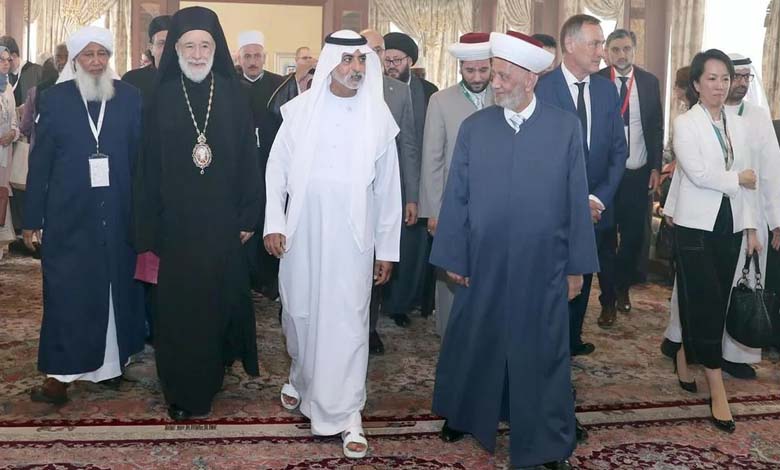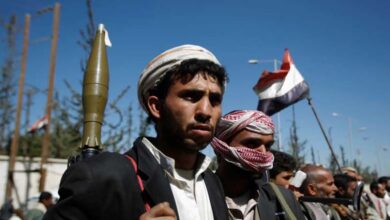Religious Discrimination Allegations Undermine Qatar’s Image Campaign

Human Rights Watch condemned Qatar on Sunday for its ongoing discrimination against the Bahá’í minority, highlighting arbitrary detentions, intimidation, deportations, and unjustified employment bans. According to the organization, such practices pose a serious threat to the community’s presence in the country.
-
Trump Faces Corruption Allegations Over Qatari Gift
-
Why Qatari Mediations Have Failed to Resolve More Than One Crisis
“Bahá’ís in Qatar have suffered decades of discrimination and intimidation by the government,” said Michael Page, deputy Middle East director at Human Rights Watch. “Authorities have repeatedly ignored the community leaders’ attempts to engage in dialogue and seek redress. This state-sponsored discrimination threatens the very existence of the Bahá’í community in Qatar.”
The Bahá’í faith, whose spiritual headquarters is in Israel, claims over seven million adherents worldwide. Followers recognize Baháʼu’lláh, born in Iran in 1817, as their prophet. Unlike other non-Muslim minorities, Bahá’ís are not officially recognized by many governments, including Qatar.
-
QatarGate Scandal Expands and Intensifies in Israel
-
Emir of Qatar Becomes First Arab Leader to Visit Damascus After al-Assad’s Fall
Qatar’s 2003 Constitution prohibits discrimination based on “gender, origin, language, or religion” and guarantees freedom of belief. However, HRW reports that up to 14 Bahá’ís were deported between 2003 and 2025 without formal justification beyond their religious identity.
The report includes the case of an Iranian Bahá’í born in Qatar who was forced to leave the country in March 2025, after being threatened with deportation for “disturbing public order” — with no written explanation provided.
-
Qatar Fully Supports Al-Sharaa Administration
-
Qatar Moves in All Directions: Mediator in Appearance, Interests Behind the Scenes
Another high-profile case is that of Remi Rouhani, who was arrested on April 28, 2025, under Qatar’s cybercrime law. He was accused of “publishing content infringing on others’ privacy.” Rouhani, who serves as President of the Bahá’í National Spiritual Assembly in Qatar, was released in January 2025 after serving a one-month sentence.
Many Bahá’ís have also been blacklisted and permanently expelled, with residency permits denied or not renewed. Others have lost their jobs or were denied good conduct certificates, effectively barring them from employment.
-
Qatari Mediator’s Withdrawal Does Not Affect U.S. Efforts for a Gaza Ceasefire
-
What is the Truth behind Qatar’s Approval to Expel Hamas from its Territory?
These incidents are in direct contradiction with Qatar’s efforts to project a progressive global image, particularly as it seeks greater diplomatic and economic influence. They also clash with the country’s stated Vision 2030, which promotes social cohesion and human rights.
Some reports compare the treatment of Bahá’ís in Qatar to their experience in Iran and Yemen, countries often condemned for their human rights records. This association could further damage Qatar’s international standing.
-
The handshake between the Emir of Qatar and the Israeli President stirs controversy on social media… Details
-
Belgium drops pursuit of Qatari minister in Qatargate scandal swap deal
The Bahá’í International Community has raised the issue before the UN Human Rights Council, and various NGOs continue to pressure Doha to end these discriminatory policies.
UN bodies, such as the Committee on Economic, Social and Cultural Rights, have expressed concern over Qatar’s refusal to recognize the Bahá’í community, warning that this exposes them to deportation risks and legal insecurity.
-
Is Qatar closing Hamas office? And where have negotiations for the release of prisoners reached?
-
American-Qatari agreement puts the fate of Hamas and its leaders in Doha at stake
In a global environment where human rights are central to many Western foreign policies, such allegations may strain Qatar’s international relations. While economic ties may remain intact for now, a damaged reputation could reduce investor confidence in the long term.
Qatar has hosted major international sporting and cultural events, such as the 2022 FIFA World Cup, to portray itself as an open and tolerant nation. Yet, these allegations of religious discrimination — particularly against Bahá’ís — may undermine its soft power strategy.
-
Gargash on the Bahrain-Qatar meeting: Gulf and Arab solidarity rings a guarantee for the region
-
International anger and criticisms.. Qatar falls into a ban after World Cup President’s statements












